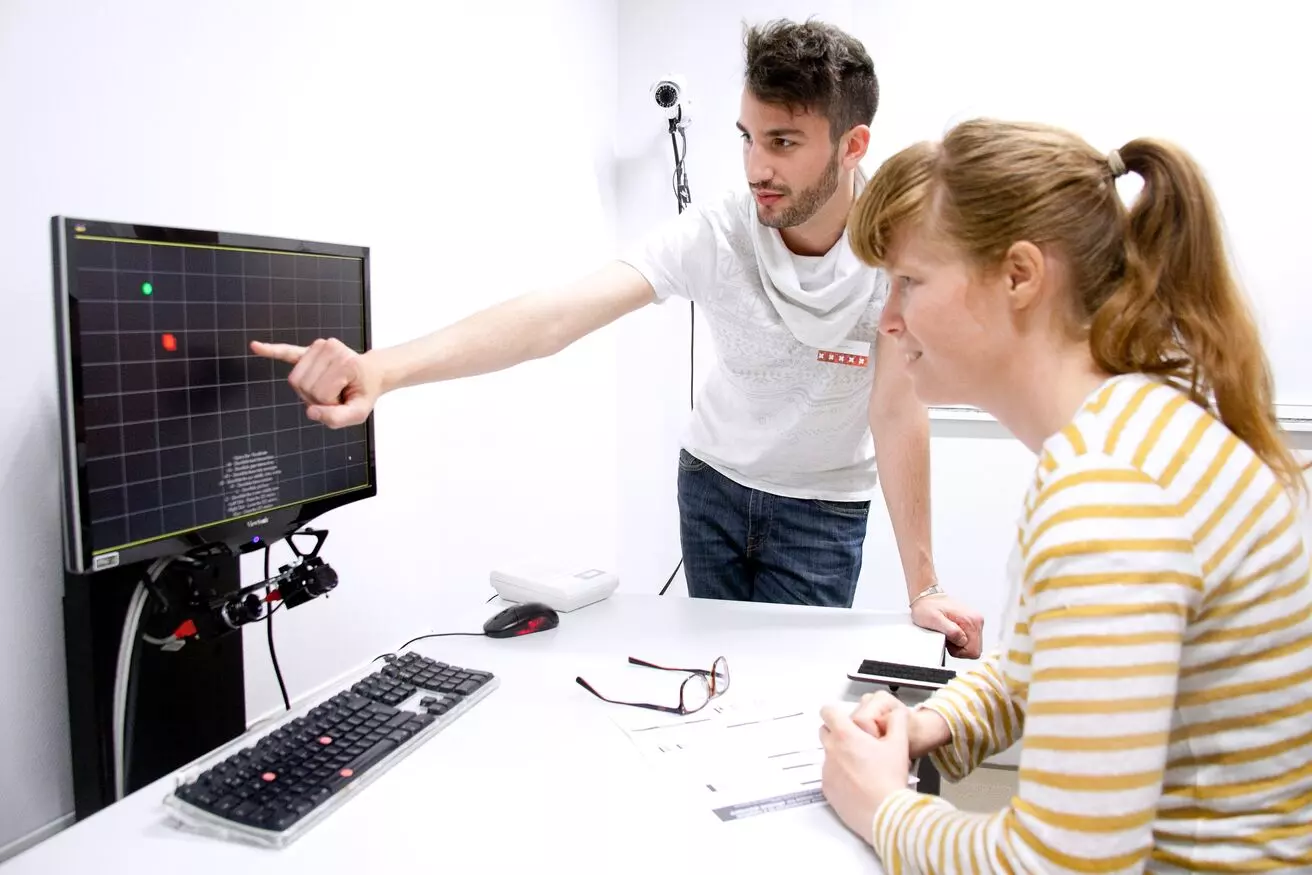
Are you excited to dive ethnographically into a complex transdisciplinary project to understand lessons learned, build capacity and creatively communicate scientific results on disaster preparedness for people with vulnerabilities? Is your ambition to professionalize in applied social sciences, and lead the reflexive learning, evaluation, and training program for a European wide research project?
Postdoctoral Researcher Evaluation & Training
- Faculty of Social and Behavioural Sciences
- 14224
- PhD
- €4.537 - €6.209
- Closes on20-07-2025
.jpg)
Are you excited to dive ethnographically into a complex transdisciplinary project to understand lessons learned, build capacity and creatively communicate scientific results on disaster preparedness for people with vulnerabilities? Is your ambition to professionalize in applied social sciences, and lead the reflexive learning, evaluation, and training program for a European wide research project?
Postdoctoral Researcher Evaluation & Training
- Faculty of Social and Behavioural Sciences
- 14224
- PhD
- €4.537 - €6.209
- Closes on20-07-2025
Working at the UvA
Post-Doctoral Researcher Evaluation and Training
The department of Anthropology, programme group Health, Care & The Body, of the faculty of Social Sciences is looking for a Post-Doctoral Researcher Evaluation and Training to participate in the capacity strengthening work package of Sonar-Cities, a European Commission funded 3-year project called “Social sciences participatory research-action for preparedness in risk management for disasters and health emergencies in Europe’s cities”. The position requires a commitment for the remaining 2,5 years.
This project aims to reduce inequality and vulnerabilities among urban inhabitants in the face of disasters through the co-creation of an inclusive, citizen-centred, participatory, tailored toolset to strengthen individual, community, and municipal authority capacities to understand, prepare for, and cope more effectively with emergencies and disasters.
The project’s approach is to analyze the health consequences of past disasters and health emergencies in six European cities (Groningen, Ljubljana, Udine, Vienna, Zagreb, and Stockholm), leveraging transdisciplinary social science research and explicitly including the perspectives of people experiencing vulnerabilities. We will mobilize these analyses to co-create with publics at risk, first responders, and authorities an inclusive, citizen-centered toolset. This will comprise tested, evaluated tools and methods housed on a user-friendly platform. It will generate inclusive preparedness, improved health literacy, crisis communication and risk reduction, and a more integrated One Health approach for disasters and health emergencies in European cities.

Working at the UvA
Post-Doctoral Researcher Evaluation and Training
The department of Anthropology, programme group Health, Care & The Body, of the faculty of Social Sciences is looking for a Post-Doctoral Researcher Evaluation and Training to participate in the capacity strengthening work package of Sonar-Cities, a European Commission funded 3-year project called “Social sciences participatory research-action for preparedness in risk management for disasters and health emergencies in Europe’s cities”. The position requires a commitment for the remaining 2,5 years.
This project aims to reduce inequality and vulnerabilities among urban inhabitants in the face of disasters through the co-creation of an inclusive, citizen-centred, participatory, tailored toolset to strengthen individual, community, and municipal authority capacities to understand, prepare for, and cope more effectively with emergencies and disasters.
The project’s approach is to analyze the health consequences of past disasters and health emergencies in six European cities (Groningen, Ljubljana, Udine, Vienna, Zagreb, and Stockholm), leveraging transdisciplinary social science research and explicitly including the perspectives of people experiencing vulnerabilities. We will mobilize these analyses to co-create with publics at risk, first responders, and authorities an inclusive, citizen-centered toolset. This will comprise tested, evaluated tools and methods housed on a user-friendly platform. It will generate inclusive preparedness, improved health literacy, crisis communication and risk reduction, and a more integrated One Health approach for disasters and health emergencies in European cities.
All about this vacancy
What are you going to do
You will be the main work package coordinator in a small team consisting of a research assistant and the senior principal investigator. You will further develop and implement an innovative, reflexive project learning program, setting professional standards in an international environment with high visibility. You will work closely with the work package research assistant and serve as main project liaison to the broad international network of researchers and stakeholders. You will lead the training program, facilitate participatory ethnographic research, be the face of international webinars, and set the standards for the development of the project Knowledge Platform implemented by an IT project partner.
You will:
- Ethnographically follow the project process and output and distilling and disseminating key lessons learned in order to refine the project’s Theory of Change and deliver a final (self)evaluation;
- Develop curricula for a series of webinars and the final massive open-online course (MOOC) on the project results, and support ad hoc training requests (if any);
- Coordinate and support the research assistant’s activities
- Lead the publication of results.
What do you have to offer
The candidate should demonstrate experience in the field of disaster preparedness and response and the justice and inclusion of vulnerable populations, such as people living with disabilities, psychiatric patients, or older people. The successful candidate will understand that this is an applied research position that places at its centre stakeholder relationships, transdisciplinary learning, reflection and capacity building. The candidate will have experience in training and curriculum development, project coordination, monitoring & evaluation, qualitative data collection, and publication of results. We are looking for an open-minded person who is interested to dive into a complex international project and engage with research partners, professionals and the broader public. Aptitude in dealing with digital infrastructures is helpful (e.g. hosting webinars on Teams, etc.).
Your experience and profile:
- minimum PhD level education (near PhD can be considered if highly qualified);
- knowledge of the fields of disaster preparedness and inclusive development;
- experience leading trainings, webinars and curriculum development;
- experience with ethnographic, reflexive and participatory research methods;
- good facilitation skills;
- experience with complex consortium projects and project management;
- experience developing peer-reviewed publications;
- excellent English language skills, with a second language relevant to the project highly desired.
What else do we offer you
The position concerns temporary employment of 19 hours per week. The initial employment is for one year, starting as soon as possible. Following a positive evaluation and barring altered circumstances, the initial term may be extended for a period to 30 November 2027. We will support opportunities to attend training courses and both national and international events.
All about this vacancy
What are you going to do
You will be the main work package coordinator in a small team consisting of a research assistant and the senior principal investigator. You will further develop and implement an innovative, reflexive project learning program, setting professional standards in an international environment with high visibility. You will work closely with the work package research assistant and serve as main project liaison to the broad international network of researchers and stakeholders. You will lead the training program, facilitate participatory ethnographic research, be the face of international webinars, and set the standards for the development of the project Knowledge Platform implemented by an IT project partner.
You will:
- Ethnographically follow the project process and output and distilling and disseminating key lessons learned in order to refine the project’s Theory of Change and deliver a final (self)evaluation;
- Develop curricula for a series of webinars and the final massive open-online course (MOOC) on the project results, and support ad hoc training requests (if any);
- Coordinate and support the research assistant’s activities
- Lead the publication of results.
What do you have to offer
The candidate should demonstrate experience in the field of disaster preparedness and response and the justice and inclusion of vulnerable populations, such as people living with disabilities, psychiatric patients, or older people. The successful candidate will understand that this is an applied research position that places at its centre stakeholder relationships, transdisciplinary learning, reflection and capacity building. The candidate will have experience in training and curriculum development, project coordination, monitoring & evaluation, qualitative data collection, and publication of results. We are looking for an open-minded person who is interested to dive into a complex international project and engage with research partners, professionals and the broader public. Aptitude in dealing with digital infrastructures is helpful (e.g. hosting webinars on Teams, etc.).
Your experience and profile:
- minimum PhD level education (near PhD can be considered if highly qualified);
- knowledge of the fields of disaster preparedness and inclusive development;
- experience leading trainings, webinars and curriculum development;
- experience with ethnographic, reflexive and participatory research methods;
- good facilitation skills;
- experience with complex consortium projects and project management;
- experience developing peer-reviewed publications;
- excellent English language skills, with a second language relevant to the project highly desired.
What else do we offer you
The position concerns temporary employment of 19 hours per week. The initial employment is for one year, starting as soon as possible. Following a positive evaluation and barring altered circumstances, the initial term may be extended for a period to 30 November 2027. We will support opportunities to attend training courses and both national and international events.
Your place at the UvA
This is where you will be working
You will be part of the staff of the Department of Anthropology, a vibrant and intellectually stimulating department based in the heart of Amsterdam and consisting of more than 50 teachers/researchers.
About the Faculty of Social and Behavioural Sciences
The Faculty of Social and Behavioural Sciences (FMG) is the largest educational and research institution in the field of social and behavioural sciences in Europe.
Here, we explore societal and human-centered issues, driven by scientific curiosity but also with an eye for current themes. For example, the impact of media and communication on individuals and society, healthcare challenges, global urbanization, human development, the role of political institutions, understanding the human mind, growing inequality, diversity issues, and changing social relationships.
In Europe and beyond, the FMG holds a leading position, thanks in part to its more than 1,300 staff members who contribute to education and research. Will you be one of them?
Your place at the UvA
This is where you will be working
This is where you will be working
You will be part of the staff of the Department of Anthropology, a vibrant and intellectually stimulating department based in the heart of Amsterdam and consisting of more than 50 teachers/researchers.
About the Faculty of Social and Behavioural Sciences
The Faculty of Social and Behavioural Sciences (FMG) is the largest educational and research institution in the field of social and behavioural sciences in Europe.
Here, we explore societal and human-centered issues, driven by scientific curiosity but also with an eye for current themes. For example, the impact of media and communication on individuals and society, healthcare challenges, global urbanization, human development, the role of political institutions, understanding the human mind, growing inequality, diversity issues, and changing social relationships.
In Europe and beyond, the FMG holds a leading position, thanks in part to its more than 1,300 staff members who contribute to education and research. Will you be one of them?
Important to know
Your application & contact
If this vacancy speaks to you, but you are uncertain whether you meet all requirements, please do get in touch with us or apply. In light of our department’s commitment to a diverse and inclusive working environment, we strongly encourage applications from candidates who come from groups historically disenfranchised by and underrepresented in Dutch academia.
Do you recognize yourself in the job profile? Then we look forward to receiving your application/motivation letter and resume in one .pdf no later than 20 July 2025.
Applications in .pdf should include:
- a curriculum vitae;
- a letter of motivation;
- two names of references that can be contacted (no reference letters!).
For questions about the vacancy, you can contact:
- Dr. Danny de Vries, principal investigator, [email protected]
Diversity, Equity & Inclusion
As an employer, the UvA maintains an equal opportunities policy. We value diversity and are fully committed to being a place where everyone feels at home. We nurture inquisitive minds and perseverance and allow room for persistent questioning. With us, curiosity and creativity are the prevailing culture.
Important to know
Your application & contact
If this vacancy speaks to you, but you are uncertain whether you meet all requirements, please do get in touch with us or apply. In light of our department’s commitment to a diverse and inclusive working environment, we strongly encourage applications from candidates who come from groups historically disenfranchised by and underrepresented in Dutch academia.
Do you recognize yourself in the job profile? Then we look forward to receiving your application/motivation letter and resume in one .pdf no later than 20 July 2025.
Applications in .pdf should include:
- a curriculum vitae;
- a letter of motivation;
- two names of references that can be contacted (no reference letters!).
For questions about the vacancy, you can contact:
- Dr. Danny de Vries, principal investigator, [email protected]
As an employer, the UvA maintains an equal opportunities policy. We value diversity and are fully committed to being a place where everyone feels at home. We nurture inquisitive minds and perseverance and allow room for persistent questioning. With us, curiosity and creativity are the prevailing culture.
Other interesting vacancies for you

Postdoc on the Political Ecology of Construction Materials and Demolition Waste
- Faculty of Social and Behavioural Sciences
- €4.537 - €6.209
- Closes on15-08-2025
- PhD
- 38 hours
We are looking for a post-doctoral researcher able to investigate the political ecology of the construction industry and construction waste. Construction is still one of the most environmentally destructive and extractive industry in the economy and its existence is closely intertwined with uneven and unjust urbanization patterns. The postdoc will study the political power plays that drive this industry.
View vacancy

Postdoctoral Researcher on Computational Modelling of Emotional Memory Binding
- Faculty of Social and Behavioural Sciences
- €4.537 - €6.209
- Closes on20-08-2025
- PhD
- 30 - 38 hours
How do memories work together to create the stories of our lives? While we know a lot about the processing of single (emotional) events on the one hand, and autobiographical memory on the other, connecting these two fields is a challenge. This project is part of an NWO-funded (Vidi) project that aims to create a framework for autobiographical memory transformation.
View vacancy

PostDoc (Computational) Communication Science - TWON Project
- Faculty of Social and Behavioural Sciences
- €4.537 - €6.209
- Closes on28-07-2025
- PhD
- 26 - 38 hours
Do you enjoy• engaging in cutting-edge research as part of a larger European team?• answering theoretically and societally important communication science questions?• applying computational approaches yourself and/or working closely together with computationally-minded colleagues?• thinking about how platform design choices impact news, political information, and public debate?
View vacancy
Other interesting vacancies for you

Postdoc on the Political Ecology of Construction Materials and Demolition Waste
- Faculty of Social and Behavioural Sciences
- €4.537 - €6.209
- Closes on15-08-2025
- PhD
- 38 hours
We are looking for a post-doctoral researcher able to investigate the political ecology of the construction industry and construction waste. Construction is still one of the most environmentally destructive and extractive industry in the economy and its existence is closely intertwined with uneven and unjust urbanization patterns. The postdoc will study the political power plays that drive this industry.
View vacancy

Postdoctoral Researcher on Computational Modelling of Emotional Memory Binding
- Faculty of Social and Behavioural Sciences
- €4.537 - €6.209
- Closes on20-08-2025
- PhD
- 30 - 38 hours
How do memories work together to create the stories of our lives? While we know a lot about the processing of single (emotional) events on the one hand, and autobiographical memory on the other, connecting these two fields is a challenge. This project is part of an NWO-funded (Vidi) project that aims to create a framework for autobiographical memory transformation.
View vacancy

PostDoc (Computational) Communication Science - TWON Project
- Faculty of Social and Behavioural Sciences
- €4.537 - €6.209
- Closes on28-07-2025
- PhD
- 26 - 38 hours
Do you enjoy• engaging in cutting-edge research as part of a larger European team?• answering theoretically and societally important communication science questions?• applying computational approaches yourself and/or working closely together with computationally-minded colleagues?• thinking about how platform design choices impact news, political information, and public debate?
View vacancy

Don't miss out on your dream job!
Sign up for a job alert and you'll receive automatic updates about new and relevant vacancies.

Don't miss out on your dream job!
Sign up for a job alert and you'll receive automatic updates about new and relevant vacancies.
This website uses cookies
We, and third parties, use cookies on our website. We use cookies to ensure that our website functions properly, to store your preferences, to gain insight into visitor behavior, but also for marketing and social media purposes (showing personalized advertisements). By clicking 'Accept', you agree to the use of all cookies. In our Cookie Statement. you can read more about the cookies we use and save or change your preferences. By clicking 'Refuse' you only agree to the use of functional cookies.
